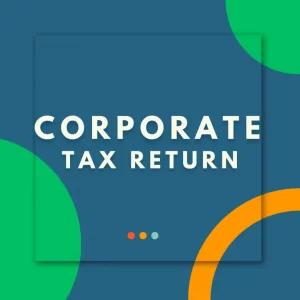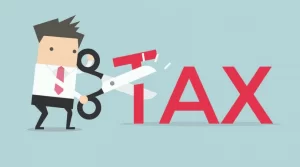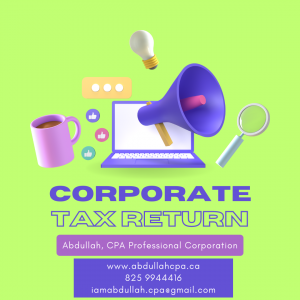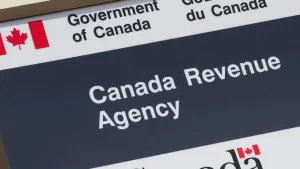After working with hundreds of self-employed or incorporated business owners in Ontario — we’ve noticed a pattern that These are the most common tax mistakes that trigger a CRA Audit. All of these business owners were making the same BIG tax mistakes that would cost them their hard- earned money.
Mistake #1. Choosing the wrong business structure.
Self-employed and incorporated business both have their pros and cons. Make sure you discuss which option is better for your situation with your accountant. You might be able to save thousands, if not tens of thousands, of dollars just by incorporating your business.
Mistake #2. Not doing proper tax planning.
You need to do tax planning throughout the year with a professional accountant who fully understands the nature of your business, your life goals and needs, and applies for all available credits, deductions, and valuable tax savings that are applicable not only to your business but also to you personally and your entire family.
Consider working with a tax professional who can help you win.
Mistake #3. Mixing personal and business expenses.
Never use business bank accounts or credit cards for personal use. And never claim personal expenses on your business tax returns. Make sure you have a separate business credit and debit cards and use those for all business related expenses.
Mistake #4. Not doing regular bookkeeping.
Never wait until the tax time to catch up on your bookkeeping. You need to be working with a bookkeeper throughout the year to keep all of your income and expense records organized, maintain clean books, balanced accounts, and create Profit & Loss statement every single month. Proper bookkeeping and an advice from a professional accountant can help you identify the most tax-efficient way to run your business.
Mistake #5. Transfers into a personal or family member’s bank accounts from your business.
Never make such transfers without properly declaring salary or dividends and make sure to report this as income on your personal income tax returns. You must accurately declare dividends or salary, remit all payroll deductions, and make bookkeeping entries for all transfers to shareholders or family members. Tax On Split Income might also apply, so be very careful.
Mistake #6. Late filing and payments or not filing at all.
You are playing with fire when you are being late on paying remittances and installments, as well as filings of HST, payroll and yearly tax returns. It is just a matter of time until CRA send you that nasty letter. Remember, HST and payroll deductions are government’s money they trust you with and they WILL collect it from you. Open a separate account where you transfer these funds into each month so there is no surprise at the end of the year with your tax planning. Think of that person like a coach who is helping his or her team figure out how to win.
Mistake #7. Not registering and not collecting the HST.
Remember, you have to register for and charge HST as soon as your business passes $30,000 in revenue per year. You do not wait for the end of the year. You start charging and register as soon as you reach $30,000.
Mistake #8. Claiming high [TCs when you collected $0 in HST.
Make sure to claim your input tax credits at the end of the year to recover the HST you paid on eligible business expenses. Be careful with large refunds of HST, you will get audited. Also check if your business qualifies to use the simplified filing method that actually allows you to keep the portion of HST you charged.
Here’s how it works: When a small business sells items or services, they charge a 13% HST rate to their customers. However, when it comes time to remit the HST to the Canada Revenue Agency, the business only has to pay 8.8% of their total sales. The difference between the 13% rate charged to customers and the 8.8% rate paid to the CRA is retained by the business.
Mistake #9. Not keeping receipts.
Some businesses make the mistake of relying on their credit card statement as a record of expenses for their company. Unfortunately, the CRA does not accept credit card statements as evidence of expenses. This one is obvious, however bookkeeping of a lot of businesses is still a mess. Working with a certified bookkeeper and using newest technology makes keeping track of your transactions and receipts much easier to ensure your bookkeeping is clean and organized.
Mistake #10. Not keeping an accurate mileage log.
Remember, you cannot deduct any auto expenses for business without a mileage log with KMs driven for business purposes accurately recorded.
Mistake #11. Writing off full asset cost as an expense instead of claiming CCA.
You should not be writing off the entire asset purchased, for example, at the end of the year as an expense. Instead you should be claiming CCA on it over the years. Businesses can claim CCA on assets such as buildings, machinery, and equipment to reduce their taxable income.
Mistake #12. Claiming higher expenses than industry average.
CRA has a system in place to know the average revenue and expenses (and the ratio between the two) for
businesses in your industry. When you are constantly off from these averages, CRA will ask questions. Taking deductions for things you shouldn’t is a potential invitation to an audit, with severe penalties if you’re caught. Even legitimate deductions can trip you up if they’re out of proportion with your income or with what similarly-sized businesses in your industry are claiming.
Mistake #13. Paying employees as independent contractors under the table.
Payroll taxes can be a hassle. They’re also expensive. You may find yourself thinking it would just be easier to pay your workers as independent contractors instead of signing them up as employees. Or better yet why not just pay them in cash? There’s nothing wrong with paying independent contractors or freelancers to do work for your business. But the CRA and other governmental agencies have rules about who must be considered an employee, and it’s important you abide by these rules.
For example: If you paid someone as an independent contractor and the CRA determines later they worked under your control and should have been classified as an employee, you could end up owing back taxes and penalties. In addition, your entire business, including HST and payroll, can get audited…and they don’t stop there. They can also go back and audit your past employees/contractors and reassess their past tax returns as well. It’s not a great place to be in.
Mistake #14. Claiming constant losses.
CRA knows that starting a business is not an overnight success and you might need few years to turn profit in certain industries. But constant losses will raise red flags and trigger a reassessment or an audit. The reason is simple, you don’t start a business with expectation to constantly lose money. This is a sign that something shady might be going on.
Beware: if you claim more in expenses than you do in income over several years (meaning you keep showing a loss instead of profit), the CRA may declare your venture a hobby rather than a business, and disallow the deductions altogether.
Mistake #15. Not being careful who they get their tax advice from.
Your friends, coworkers, local baristas or your mechanic are not tax specialists.
Getting the WRONG tax advice can be DISASTROUS! It can mean exposure to extra taxes, penalties or interest.
What is suitable for their tax situation can be a horrible advice for your business costing you money.
Mistake #16. Working with an average accountant.
You see, most accountants lack real-world business experience. They don’t understand your unique needs,
goals, and struggles. They hand off your bookkeeping to “juniors” and then just plug in the numbers they get back.
Their only goal is to get your returns filed in minimal time and then move to the next client. This leads to tax returns being filed without much thought and proper planning.
Mistake #17. Under-reporting Income or over-reporting expenses. HST mismatches.
CRA has systems in place to match information that they have reported on you with what you declare on your tax returns. Audits are often triggered when information is not reported or it is not reported accurately. Another danger zone is when you collect $100,000 of revenue and report less than 13% of HST or not report it at all.
Mistake #18. Failing to reconcile.
To ensure the accuracy and consistency of your financial records, it is essential to regularly compare your bank statements to your bookkeeping records, a process known as reconciliation. This process helps you determine your current financial position and identify any errors before they can cause significant issues. While reconciliation can be complex, it is advisable to hire a skilled bookkeeper to assist with this task.
Mistake #19. Not saving for tax payments.
This is the best piece of advice to make sure you are prepared for your tax year-end and for any income tax, HST, and payroll liabilities you might have. Make sure you set cash aside to cover tax liabilities. A good rule of thumb for businesses starting out — and for all business owners to avoid the situation in which they can’t foot the full tax bill — is to set aside 25% to 30% of net income in a separate account and make regular installments.
Mistake #20. Missing the signs of fraud.
Business owners should be aware of their financial situation at all times. Work with a trusted third-party
bookkeeper and accountant to ensure employee fraud is quickly caught. Watch out for misuse of employee discounts, AR and AP accounts. You should never put yourself in a position where you don’t know what’s going on with your business finances and trigger a CRA audit.
Want to legally minimize your business taxes?
These are some of the most common mistakes that can cost you and your business thousands and, in most cases, tens of thousands of dollars every single year.
Not to mention the constant worry, stress, and potential risks of a CRA audit.
Now is the time to get the expert help you need and get your books and taxes in order.
Ready to minimize your business taxes?
Let’s find the most tax efficient way to run your business.






